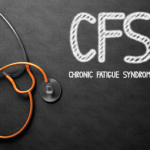
Image Credit: THPStock/SHUTTERSTOCK.COM
A report from the Institute of Medicine that gives new diagnostic criteria for myalgic encephalomyelitis/chronic fatigue syndrome (ME/CFS) and recommends a new name for the disorder received mixed reviews from rheumatologists and other physicians.1
“Diagnosing ME/CFS often is a challenge … the new diagnostic criteria will make it easier for clinicians to recognize and accurately diagnose patients in a timely manner, as well as allow a large percentage of currently undiagnosed patients to receive appropriate care,” says the chair of the committee that wrote the report, Ellen Wright Clayton, who is the Craig-Weaver Professor of Pediatrics and professor of law at Vanderbilt University.
The committee recommended that physicians diagnose ME/CFS if certain diagnostic criteria are met following an appropriate history, physical examination and medical workup. Diagnosis of ME/CFS would require three core symptoms:
- A substantial reduction or impairment in the ability to engage in pre-illness levels of activities that persists for more than six months and is accompanied by fatigue of new or definite onset;
- The worsening of a patients’ symptoms after any type of exertion, such as physical, cognitive or emotional stress; and
- Unrefreshing sleep.
In addition, the patient must either have cognitive impairment and/or be unable to remain upright, with symptoms that improve when lying down (orthostatic intolerance).
Stuart Kaplan, MD, partner, Rheumatology Consultants LLP, Hewlett, N.Y., and chief, Division of Rheumatology, South Nassau Communities Hospital, Oceanside, N.Y., believes patients will benefit from the new criteria by now being able to prove that they have a serious, potentially debilitating disease. “This will allow them to obtain the benefits and treatments they deserve,” he says. “Having criteria for fibromyalgia has made a tremendous difference for those patients. Often, just telling the patient that you know what they have and showing them how they fit the criteria for a specific disease, alleviates much of the suffering of these patients, many of whom have been told they are crazy or malingering.”
On the other hand, Robert G. Lahita, MD, PhD, FACP, MACR, FRCP, chair of medicine and vice president, Newark Beth Israel Medical Center, and professor of medicine, Rutgers, New Jersey Medical School, says the new criteria are broad and ambiguous. “Cognitive impairment is common to many illnesses, and the inability to remain upright is quite general. Postexertional malaise and unrefreshing sleep are also aspects of chronic rheumatic diseases, such as lupus, fibromyalgia and rheumatoid arthritis. There will be considerable overlap.”


